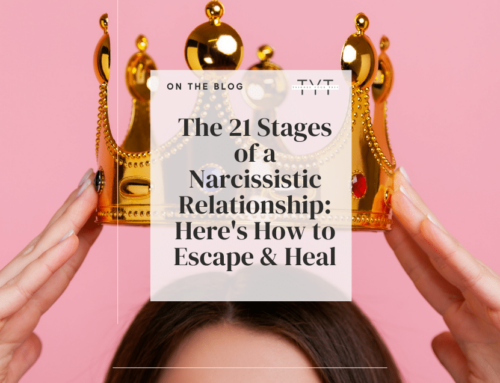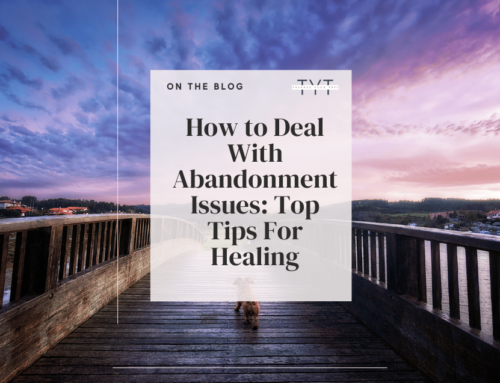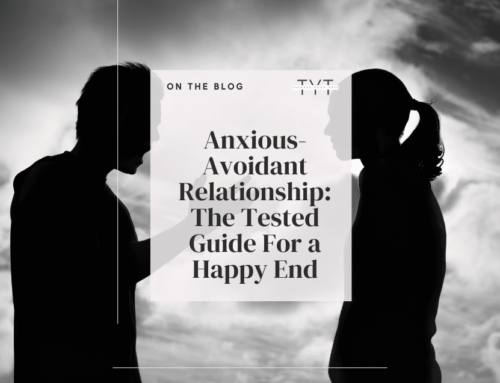The narcissist’s prayer is a short poem by Dyana Craig that offers a glimpse into the mind of a narcissist. The poem reflects on the narcissists’ selfishness and lack of empathy and how they believe these qualities make them better than others. Narcissists believe they’re entitled to love and admiration and should be allowed to take whatever they want without consequence. So, read on to find out how the narcissist prayer essentially sums up the narcissistic mind in a poetic and simple way.
The “narcissist’s prayer” can help you to understand how a narcissist thinks, as it highlights their sense of entitlement and lack of concern for others. Understanding how people with this personality disorder feel can help you reclaim your mental health and realize that their self-centered attitude to life is damaging to your mental health and self-esteem.

About People With Narcissistic Personality Disorder
Narcissistic personality disorder (NPD) is a mental disorder characterized by an inflated sense of self-importance, a need for excessive attention and admiration, and a lack of empathy for others. People with a narcissistic personality disorder often behave grandiosely or arrogantly and are preoccupied with success, power, and beauty. They usually only want to associate with high-status people and have a deep need for convincing fanfare and constant affirmation.
They exploit or manipulate others to feel superior and nurture their self-importance. Often gaslighting others and twisting things to obscure the truth if they’ve done something wrong, they have no problem living in total denial and making you feel like you remember things wrong.
Narcissistic personality disorder is different from other personality disorders because it’s not associated with any underlying mood condition or emotional instability. It’s also not caused by environmental factors such as trauma or abuse. Treatment for narcissistic personality disorder typically involves psychological therapy.
As with all personality disorders, NPD isn’t curable, and being ego-syntonic, their narcissistic traits are actually a part of their personality.
People with narcissistic personality disorder completely disregard other people’s feelings, never regret their own behavior or admit to their own mistakes, and don’t feel empathy. This makes a relationship with someone with narcissistic personality disorder very difficult.
It’s unlikely to be healthy, nurturing relationship and much more likely to be an abusive relationship where the narcissist denies any wrongdoing and constantly engages in blame-shifting to make you feel crazy.
Do you have difficulty choosing a mental health professional? Can’t afford in-person couples or individual therapy?
This online therapy toolbox is more efficient and affordable than any other virtual therapy I’ve tried, including BetterHelp and Talkspace. It instantly matches you with a therapist. By leveraging the power of CBT (Cognitive Behavioral Therapy) -the most common psychotherapeutic approach for treating mental health problems- your therapist will guide you to a happier you through the sections, worksheets, messages, and live sessions. You can do your sessions wherever you are in the world and have daily contact with your therapist.
Use my link to start only at 40$ per week for your first month.
What Is a Narcissist’s Prayer?
That didn’t happen
And if it did, it wasn’t that bad
And if it was, that’s not a big deal.
And if it is, that’s not my fault.
And if it was, I didn’t mean it.
And if I did, you deserved it.
Narcissist Prayer and Narcissistic Abuse

The narcissist’s prayer beautifully illustrates the mentality of someone with a narcissistic personality disorder. The different elements of the narcissist’s prayer represent the various facets of how people with this personality disorder see life and how they regard (or disregard) other people’s feelings.
Narcissist’s Prayer explained – Covert Emotional Abuse
Let’s closely examine how the narcissist’s prayer explains the various elements of narcissistic abuse. Knowing the narcissist’s prayer can help you recognize when you’re dealing with narcissistic abuse. It can also help you to self-reflect on your situation and decide whether or not it’s time to seek professional help.
That didn’t happen
When people with narcissistic personality disorder say, “that didn’t happen,” it’s a classic example of how they live in denial about doing something wrong. They’ll rarely, if ever, admit the truth about their own behavior and will never claim fault when something goes a-rye. This part of the narcissist’s prayer illustrates their inherent accountability issues. Despite the hurt they cause to other people’s feelings, narcissistic people don’t feel empathy or shame.
If you suspect you’re in a relationship with a narcissist, consider seeking professional help to protect yourself from emotional abuse.
And if it did, it wasn’t that bad
This part of the narcissist’s prayer describes how narcissistic individuals downplay their wrongdoing and avoid taking responsibility. In line with the notorious accountability issues and their desperate need to protect their fragile egos, it explains their total unwillingness to accept they’ve done something wrong.
In cases where narcissists can’t avoid the fault, they’ll make it seem like you’re the person doing something wrong by expressing your feelings. Being in a relationship with narcissists can be extremely distressing and may lead to chronic anxiety, depression, and damaged self-esteem.
And if it was, that’s not a big deal.
This simple verse in the narcissist’s prayer illustrates how regardless of how something they did hurt your feelings, to them, it’s simply not a big deal. This can be particularly hurtful if the narcissistic person is a family member or if you have a narcissistic mother or father. Research indicates the severe mental disorders that can ensue in children with parents with personality disorders.
And if it is, that’s not my fault.
Even if there’s no denying that something has gone wrong, narcissists won’t accept fault. If they have no choice but to admit that something did happen, they’ll deflect blame and avoid taking responsibility. While this seems outrageous to ordinary people who are used to saying sorry when we do wrong, it’s the typical response for people who don’t feel empathy and have deep-seated accountability issues.
And if it was, I didn’t mean it.
So, you’ve cornered the narcissist and provided evidence that whatever happened was their fault and that it was a big deal; what can they say next? People with an NPD diagnosis are doubtful to accept responsibility despite the stacks of proof against them. And when blame is unavoidable, they’ll say it was accidental and didn’t mean it.
By saying, “I didn’t mean it,” they’re implying that you can’t justly imply blame. They may even start guilt-tripping you about blaming them for something they didn’t mean to do.
And if I did, you deserved it.
So, it’s impossible for them to do their usual blame-shifting, and they’ve admitted to doing something that hurt you. Now what? They have to come out of denial and feel some shame, right? Wrong. This is when the narcissistic guilt-tripping and your feelings really get battered. They’ll try to convince you that whatever they did — you deserve it because you’re a terrible person.
For people who have been experiencing narcissistic abuse, hearing things like this is like salt and lemon on an open wound. This guilt-tripping can harm your sense of self-worth, self-care and inner feelings about yourself.
Don’t put up with it!
Final thoughts – narcissist’s prayer and covert narcissist
Living with a narcissist can damage your mental health for several reasons. Narcissists are never wrong and always need to be correct, which means they constantly put others down to make themselves feel better.
This can lead to feelings of insecurity and low self-esteem in those around them. In addition, narcissists are often highly manipulative and will go to great lengths to get what they want, creating an environment of constant stress and anxiety.
Finally, narcissists tend to take advantage of others emotionally and financially, which can leave you feeling used and taken advantage of. If you’re in a relationship with a narcissist, it’s important to seek out professional help to protect your mental health.
More on narcissism:
1) How does a narcissist react when they can’t control you? + 10 top tips to cope
2) Trapped in a narcissistic relationship pattern? The 7 awful signs
3) The 12 traits of a narcissist to spot immediately and avoid attachment
4) Reactive Abuse & Narcissism: What Is It & How To Deal With It






